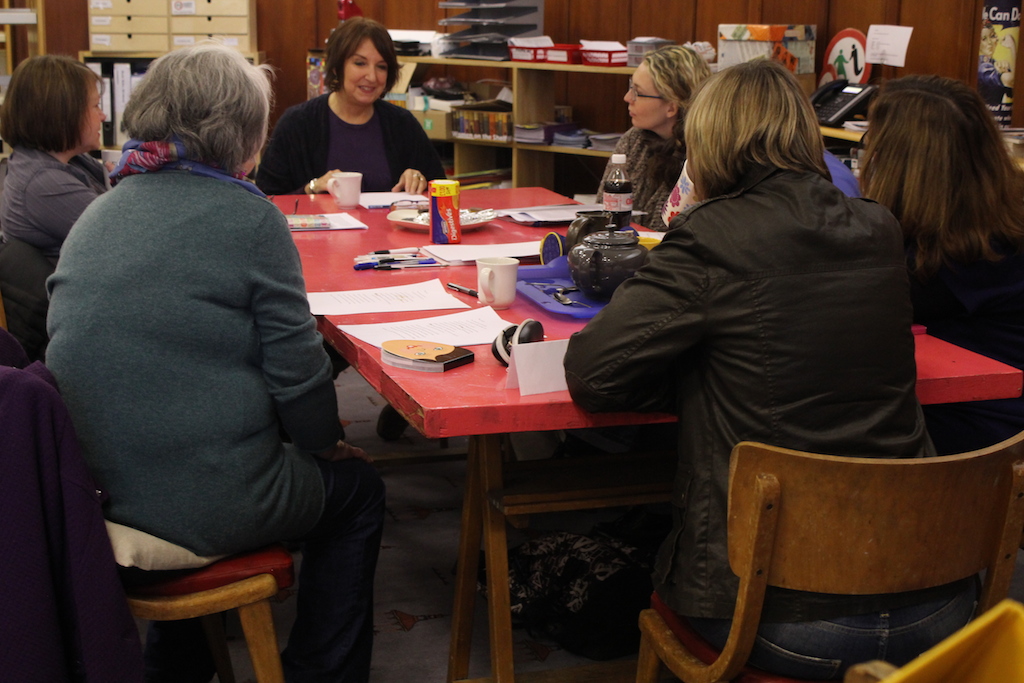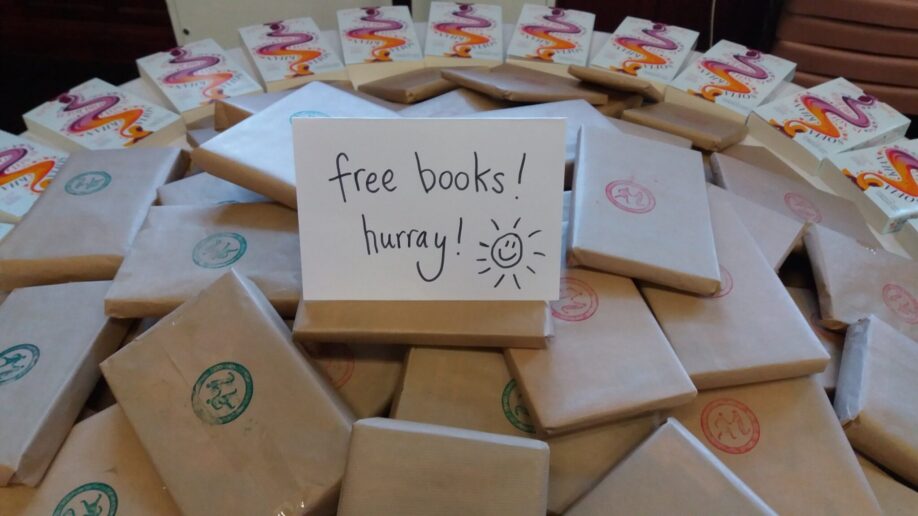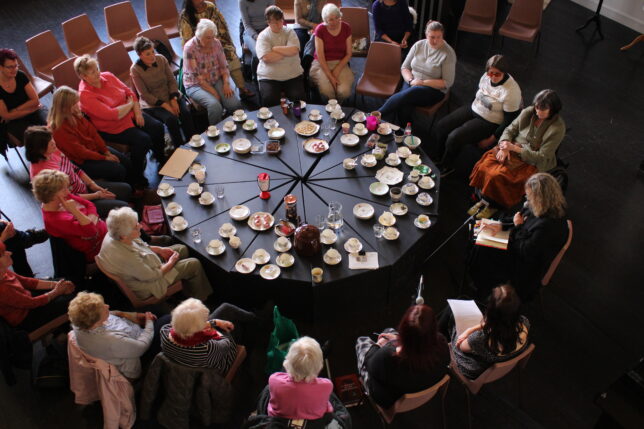On Thursday I attended the National Discussion Day responding to the report of the Advisory Group on Tackling Sectarianism in Scotland. We were asked what is the one activity that has worked most effectively and why? This is a great question and one we will be repeating ourselves throughout the project.
To date the answer is our creative writing workshops. Delivered by professional writer Magi Gibson, the workshops (inadvertently!) follow the guidance set out by the Report by recognising the need for a respectful environment where people can speak in an open and honest way. For work conducted at the Women’s Library this is a given.
Our organisation is underpinned by equality and our sessions being uniquely female-only, women’s voices are truly valued. The workshops enable women to explore the legacy of sectarianism. It allows them to talk about the past and recall the experiences that have shaped their opinions on the issue. Given the time and scope we can explore, acknowledge and reflect on sectarianism with the democratic values of a modern Scotland.
By using social media prior to and post workshop sessions we create a public dialogue of change and challenge to intolerance and hate. We take the issue of sectarianism out of the private, where it has incubated for many years, and into a public space.
We are so proud to be delivering this project and bring to it the knowledge, spirit and legacy of our on-going work and that of equalities charities and organisations who strive for a culture of democratic values in Scotland and across the globe.
On Tuesday we had our first knowledge exchange with GWL colleagues and publishing aficionados, Adele Patrick and Magi Gibson on producing the Mixing The Colours publication. The meeting provided lots of practical and creative food for thought on the process of bring our book to life! The publication will feature creative writing on the subject of sectarianism by women writers, forming the first anthology of it’s kind in Scotland.
On Friday I attended a workshop held by Xchange Scotland‘s Sectarianism Project at Galgael in Ibrox. The session was really inspiring and dynamic and successfully got to the core of people’s impassioned views on sectarianism. It was especially touching to hear people speak so passionately about challenging the intolerance that threatens our hopes for a society without discrimination and ultimately our humanity.
The phrase I have running through my head on reflection of this week is ‘The same but different’.




